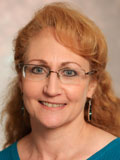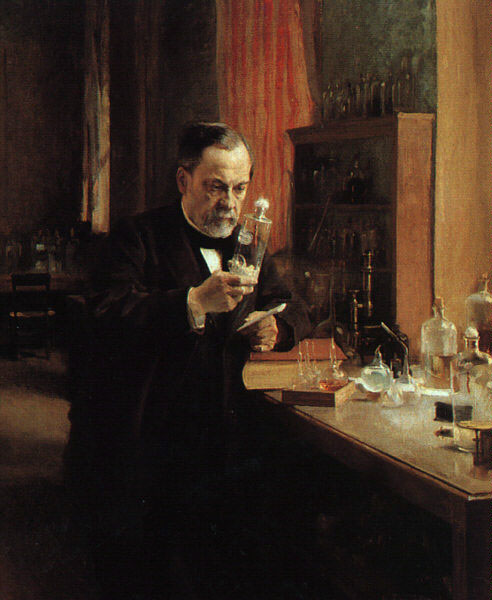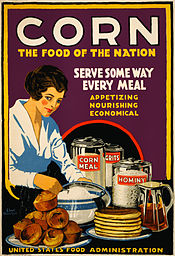As Associate Director for Science at the White House Office of Science and  Technology Policy, Dr. Jo Handelsman “helps to advise President Obama on the implications of science for the Nation, ways in which science can inform U.S. policy, and on Federal efforts in support of scientific research.” She took leave from her position as Howard Hughes Medical Institute Professor and Frederick Phineas Rose Professor in the Department of Molecular, Cellular and Developmental Biology at Yale University to serve the nation in this new role. But this is hardly the first time that Jo has taken on major challenges in addition to her academic research. When she sees a need, she dives in—usually by applying a stiff dose of science.
Technology Policy, Dr. Jo Handelsman “helps to advise President Obama on the implications of science for the Nation, ways in which science can inform U.S. policy, and on Federal efforts in support of scientific research.” She took leave from her position as Howard Hughes Medical Institute Professor and Frederick Phineas Rose Professor in the Department of Molecular, Cellular and Developmental Biology at Yale University to serve the nation in this new role. But this is hardly the first time that Jo has taken on major challenges in addition to her academic research. When she sees a need, she dives in—usually by applying a stiff dose of science.
No doubt lots of assistant professors, more or less confident in their ability to do research, find their roles as teachers and mentors more challenging than they expected. Jo—who became an assistant professor at the University of Wisconsin, Madison, at the ripe old age of 26—certainly did. So she set about learning what was known about effective teaching, and it turns out that there is substantial research on the subject. Not content with becoming a more effective teacher herself, Jo went on to try to improve biology teaching at all research universities. While at the University of Wisconsin, she helped establish the Center for Scientific Teaching, the HHMI Teaching Fellows Program for University of Wisconsin-Madison graduate students and postdocs, and the National Academies Summer Institute for Undergraduate Education in Biology.
Improving teaching is not Jo’s primary job; she leads an active research laboratory, where she and her colleagues study how bacteria communicate—how bacteria in the soil exchange information, how bacteria in insect guts interact with each other and their hosts. She has taken one of the techniques developed in her laboratory—called functional metagenomics—and developed a course based on it that will allow students around the world to discover new antibiotic compounds in local soil microbial communities. The project is called “The Small World Initiative”.
I could go on. There are her efforts to improve scientific mentoring, for which she won the Presidential Award for Excellence in Science, Mathematics, and Engineering Mentoring in 2011.
And to demonstrate the unconscious biases that contribute to systematic gender discrimination in science. And to improve science communication to the public. I encourage you to follow these links – prepare to be inspired.
But this is “Thank a Teacher Thursday”, so my goal here is to find out whether there is a science teacher in Jo Handelsman’s past who should be thanked for inspiring her to pursue a career in science. And indeed there is. In fact, there are two. One of them exposed Jo to the excitement of the scientific process. The other opened her eyes to the immense power of science to solve important social problems.
We have an unfortunate tendency, I think, to take great discoveries of the past for granted. That the earth goes around the sun or germs cause illness are statements so obvious to us now that it seems ridiculous that anyone ever thought otherwise. (One might say that the evidence for evolution and climate change is equally overwhelming, and one would be right, but—alas—NCSE continues to have to battle to keep these scientifically uncontroversial topics in our children’s science classrooms. But I digress!) Anyway, ponder, if you will, that the individuals who provided the evidence for these now obvious statements are considered among history’s greatest scientists (that would be Copernicus, Kepler, and Galileo for the first; Pasteur and Koch for the second.) Clearly these insights were not so obvious at the time.
the earth goes around the sun or germs cause illness are statements so obvious to us now that it seems ridiculous that anyone ever thought otherwise. (One might say that the evidence for evolution and climate change is equally overwhelming, and one would be right, but—alas—NCSE continues to have to battle to keep these scientifically uncontroversial topics in our children’s science classrooms. But I digress!) Anyway, ponder, if you will, that the individuals who provided the evidence for these now obvious statements are considered among history’s greatest scientists (that would be Copernicus, Kepler, and Galileo for the first; Pasteur and Koch for the second.) Clearly these insights were not so obvious at the time.
And so, asking students to figure out how scientists actually demonstrated their achievements can be an effective pedagogical tool. Indeed, Jo wrote me that just such a lesson captured her attention in 7th grade:
“I remember my teacher, Sally Rothstein, staging a class debate about spontaneous generation. I loved the rigor of building arguments around the data and the way dialogue and questions refined the arguments.”
If you’re interested in what such a lesson might be like, here’s an article that describes how to implement it. Sounds like fun, doesn’t it? Clearly, Jo was lucky enough to encounter in Ms. Rothstein’s class some of the teaching approaches that she later discovered are demonstrably effective in helping students learn science.
 Maybe Ms. Rothstein’s class would have been enough to steer Jo into a career in science, but she is not the only teacher we have to thank. In 10th grade, Jo wrote, “my biology teacher, Ralph Postiglione, was generally inspiring, but the life-changing moment was when he gave me an article from the New York Times about breeding high lysine corn at CIMMYT (the international NGO corn and wheat breeding center) in El Batan, Mexico. The idea was to make corn more nutritionally sound as a sole protein source (corn proteins are low in lysine). Mr. Postiglione knew I was interested in studying plants, so he gave me the article, which encouraged me to go into agronomy (college), molecular biology (graduate school), and plant pathology (faculty).”
Maybe Ms. Rothstein’s class would have been enough to steer Jo into a career in science, but she is not the only teacher we have to thank. In 10th grade, Jo wrote, “my biology teacher, Ralph Postiglione, was generally inspiring, but the life-changing moment was when he gave me an article from the New York Times about breeding high lysine corn at CIMMYT (the international NGO corn and wheat breeding center) in El Batan, Mexico. The idea was to make corn more nutritionally sound as a sole protein source (corn proteins are low in lysine). Mr. Postiglione knew I was interested in studying plants, so he gave me the article, which encouraged me to go into agronomy (college), molecular biology (graduate school), and plant pathology (faculty).”
We older folk have a tendency to go all “get off my lawn” and condemn kids these days as selfish, self-absorbed, and cynical. But I think we all know that many young people are in fact optimistic, idealistic, and anxious to do something meaningful with their lives. So kudos to Mr. Postiglione, who took the time to show Jo that science can solve important problems such as malnutrition.
Jo finished up her story about the teachers who inspired her with this anecdote: “In an amazing coincidence, the first class I took in graduate school was taught by Oliver Nelson, who, I found at the end of the course, was the plant geneticist who led the breeding of the high lysine corn at CIMMYT.”
The Small World Initiative that Jo and others launched has enlisted thousands of students around the world into searching for new antibiotics, while simultaneously learning what it’s like to do science. How many of these students will go on to become scientists, or science teachers, or science advocates? Maybe they will never know it, but they have Ms. Rothstein and Mr. Postiglione to thank. And so do we.

